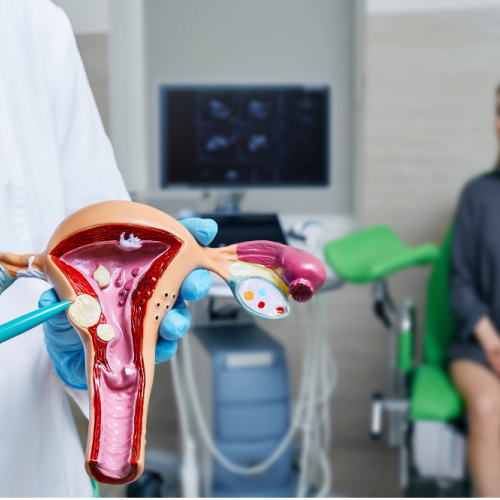Thyroid Function, Infertility, and Miscarriages

After many long months of actively trying to conceive without success, you and your partner are probably wondering why getting pregnant hasn’t as easy as you thought it would be. And if you’re anything like the average couple, you may have even begun tackling your problem by evaluating your timing, basic health habits, and overall lifestyle.
If you still find it hard to get pregnant after tracking your ovulation, eating a more nutritious diet, and reaching a healthier body weight, you may find yourself wondering whether you or your partner has an undiagnosed medical condition that affects your ability to conceive with ease.
While a significant number of couples do eventually discover that their fertility problems are linked to low sperm count, poor sperm motility, an ovulation disorder, or a gynecological condition like polycystic ovary syndrome, just as many couples are surprised to find out that an undiagnosed or uncontrolled thyroid disorder is to blame.
Your thyroid gland may be small and unassuming, but the hormones it produces play a major role in virtually all of your body processes, including reproduction. Here’s what you need to know.
Thyroid function basics
Your thyroid is a small, butterfly-shaped endocrine gland situated along your windpipe at the front of your neck. It’s tasked with absorbing the iodine from your diet and transforming it into thyroxine (T4) and triiodothyronine (T3), the thyroid hormones that help regulate metabolism, which involves how each cell, tissue, organ, and system in your body uses energy.
Your thyroid gland controls or influences a wide range of vital body processes, including heart rate, temperature, respiration, nervous system activity, and muscle function. It also helps regulate ovulation, menstrual cycle regularity, and other aspects of reproductive health, including normal fetal health and development.
If your thyroid gland isn’t working properly — or if the two glands in your brain that control it (pituitary gland and hypothalamus) aren’t working well — it can’t maintain a steady output of thyroid hormones. It may produce too many hormones and cause your body systems to speed up (hyperthyroidism), or it may produce too few hormones and cause your body systems to slow down (hypothyroidism).
A thyroid hormone imbalance of any kind can have a negative impact on your reproductive health, making it either difficult to become pregnant or carry a pregnancy to term.
Thyroid disorders and infertility
An estimated 30 million adults in the United States have some type of thyroid disorder. An underactive thyroid, or hypothyroidism, is especially common, particularly among women — the condition affects five times as many women as men.
An underactive thyroid that doesn’t produce enough hormones can interfere with ovulation, or the monthly release of an egg from your ovaries. It simply isn’t possible to become pregnant if an egg isn’t available for fertilization.
Hyperthyroidism, which is an overactive thyroid, can also affect your ability to become pregnant by throwing your menstrual cycle off balance. Women with hyperthyroidism are more likely to experience light, irregular, or skipped periods.
Thyroid disorders and miscarriage
In addition to making it more challenging to conceive, an underactive thyroid can make it more difficult for your body to carry any pregnancy that does occur to full term.
Because your body requires a certain level of thyroid hormone to support a developing fetus as well as your own expanded metabolic needs, having low levels of thyroid hormone can irreversibly impair fetal growth and development in early pregnancy and lead to miscarriage.
Women with untreated hypothyroidism who are able to conceive are more likely to have a miscarriage in their first trimester. They’re also more likely to experience multiple miscarriages compared to women with normal levels of thyroid hormones.
Although an overactive thyroid isn’t as likely to cause recurrent miscarriage, it has been linked to premature birth, low birth weight, and stillbirth.
Evaluation, diagnosis, and treatment
If you’re under the age of 35 and haven’t been able to conceive after a year of trying, or you’re over 35 and have been trying for six months, it’s a good idea to schedule a comprehensive infertility evaluation.
Because hormones play a critical role in every stage of conception and pregnancy, assessing thyroid function is an essential component of your infertility checkup. It’s especially important if you have a family history of thyroid disorders, or if you’ve ever experienced irregular periods or multiple miscarriages.
For women who are diagnosed with a thyroid disorder, medication is often all it takes to balance hormone levels and restore fertility. As always, your personal treatment plan depends on your exact diagnosis.
If you’d like to learn more about how your thyroid influences your fertility, call your nearest California Center for Reproductive Health clinic in Encino, West Hollywood, Monica, or Valencia, California. You can also use our easy online scheduling tool to make an appointment with one of our fertility experts any time.



